What is dental grade teeth whitening ?
- What is dental grade teeth whitening?
- Definition of dental grade teeth whitening
- How dental grade whitening differs from over-the-counter options
- Concentration and active ingredients in dental grade teeth whitening
- Delivery systems and professional protocols for dental grade whitening
- How dental grade teeth whitening works
- Chemistry behind peroxide-based whitening
- Typical clinical steps in dental grade whitening
- Safety and side effects of dental grade teeth whitening
- Common side effects and how professionals manage them
- Regulation, evidence and best practices
- Expected results and timelines for dental grade teeth whitening
- How long until you see results with dental grade whitening
- Longevity and maintenance of results
- Choosing a dental grade whitening product or supplier
- What to look for in a dental grade teeth whitening supplier
- Certifications, testing and clinical support
- Why dental clinics and brands choose Double White for dental grade whitening
- Double White’s manufacturing and R&D strengths
- Product range and customization options
- How to integrate dental grade whitening into your clinic or product line
- Steps for clinics adopting dental grade systems
- Steps for brands launching private label dental grade products
- Cost considerations for dental grade teeth whitening
- Typical pricing ranges and ROI for clinics and brands
- Conclusion
- Why dental grade teeth whitening matters
- Frequently Asked Questions
What is dental grade teeth whitening?
Definition of dental grade teeth whitening
Dental grade teeth whitening refers to whitening treatments and products formulated and delivered at concentrations, protocols and under conditions that meet professional dental standards. These products typically use dental-grade hydrogen peroxide or carbamide peroxide in higher, clinically effective concentrations than most over-the-counter (OTC) products. Dental grade solutions are used in dentist-supervised in-office treatments, dentist-dispensed at-home kits, and professional wholesale products such as teeth whitening strips, gels and pens supplied to clinics and retail partners.
How dental grade whitening differs from over-the-counter options
Concentration and active ingredients in dental grade teeth whitening
Dental grade teeth whitening products commonly use hydrogen peroxide or carbamide peroxide at concentrations calibrated for predictable results. In-office professional systems often use hydrogen peroxide percentages in the range dentists commonly employ (for example, many professional in-office products are formulated with hydrogen peroxide around the 25–40% range under controlled conditions). Dentist-dispensed at-home kits typically use carbamide peroxide (which breaks down into hydrogen peroxide) in concentrations that are lower but still stronger than most OTC gels—commonly 10–22% carbamide peroxide (roughly equivalent to about 3–7% hydrogen peroxide). These concentrations enable faster and more reliable shade improvements compared with many OTC whitening strips and toothpastes.
Delivery systems and professional protocols for dental grade whitening
A key difference is delivery: dental grade whitening frequently uses custom-fitted trays, professionally applied gels and strict protocols that minimize contact with gums and reduce sensitivity. In-office treatments can include isolation of soft tissues, adjunctive light or laser activation where clinically appropriate, and post-treatment desensitizing protocols. Dentist-dispensed trays and strips from professional suppliers like Double White are designed with medical-grade materials and quality control to meet B2B needs.
How dental grade teeth whitening works
Chemistry behind peroxide-based whitening
The whitening action comes from peroxide molecules penetrating enamel and dentin to oxidize chromophores—molecules that cause stains. Hydrogen peroxide releases free radicals that break apart stain compounds into smaller, less colored molecules, producing visible lightening. Carbamide peroxide decomposes into hydrogen peroxide and urea; because it releases hydrogen peroxide more slowly, carbamide peroxide is commonly used in at-home, dentist-supervised trays for gradual whitening with reduced sensitivity.
Typical clinical steps in dental grade whitening
In-office clinical steps usually include assessment (medical and dental history), shade documentation, soft-tissue protection, application of the whitening gel, timed exposure (often 15–30 minutes per cycle), and post-treatment instructions. Dentist-dispensed at-home whitening kits include custom trays or professionally tested strips with precise peroxide concentrations and instructions to ensure consistent results. These professional systems emphasize safety and repeatable outcomes—important for clinics and private-label brands sourcing dental grade teeth whitening products.
Safety and side effects of dental grade teeth whitening
Common side effects and how professionals manage them
The most common side effects are transient tooth sensitivity and mild gum irritation. Dental professionals manage sensitivity by using desensitizing agents (potassium nitrate, fluoride), adjusting peroxide concentration or exposure time, and by applying protective barriers on gingival tissues. When dental grade whitening is delivered by trained clinicians or via dentist-dispensed products, protocols are in place to reduce risks and to monitor patient outcomes.
Regulation, evidence and best practices
Dental grade whitening products are subject to medical device and cosmetic regulations depending on local laws. Evidence from peer-reviewed studies indicates peroxide-based whitening is effective and safe when used according to professional guidelines. For manufacturers and clinics, choosing suppliers with rigorous quality control, batch testing and clear usage instructions—like Double White—supports compliance and patient safety.
Expected results and timelines for dental grade teeth whitening
How long until you see results with dental grade whitening
In-office dental grade whitening often produces immediate shade improvements after a single visit, commonly lightening teeth by several shades. Dentist-dispensed at-home professional kits typically produce visible results within a few days to two weeks, with full effect after the recommended treatment course (often 1–4 weeks). Results vary with the type of staining (intrinsic vs extrinsic), baseline shade, and adherence to protocol.
Longevity and maintenance of results
Results depend on lifestyle factors—smoking, coffee, tea, red wine and certain foods can re-stain teeth. Dental grade systems combined with maintenance products such as touch-up gels or whitening pens (available from manufacturers like Double White) help prolong outcomes. Good oral hygiene and periodic professional touch-ups are common recommendations to preserve shade improvements.
Choosing a dental grade whitening product or supplier
What to look for in a dental grade teeth whitening supplier
Clinics and brands should prioritize suppliers that provide medical-grade peroxide, validated formulations, third-party testing, GMP-standard manufacturing, and traceable quality control. Commercial intent buyers should also consider suppliers offering private label services, customized packaging, and sample programs—services Double White provides to support product development and market entry.
Certifications, testing and clinical support
Choose suppliers who can share stability data, safety test reports, and clinical literature references. Look for ISO certifications, GMP compliance, and the ability to produce documentation for regulatory filings. Reputable suppliers offer technical support, marketing assets and training materials to help clinics and retailers sell and administer dental grade teeth whitening effectively.
Why dental clinics and brands choose Double White for dental grade whitening
Double White’s manufacturing and R&D strengths
Double White specializes in oral care biotechnology, integrating research, production and brand strategy. As a leading teeth whitening kit supplier in China, Double White manufactures dental grade teeth whitening strips, gels and pens with strict quality control. The company supports B2B customers with free samples, customized packaging and OEM/ODM services—helpful for clinics, e-commerce brands and private label customers seeking professional-grade whitening products.
Product range and customization options
Double White’s product line includes peroxide gels for tray systems, professional-strength whitening strips, convenient whitening pens and full kit solutions for dental practices and retailers. The company’s customization services allow brands to specify concentrations within regulatory limits, tailor packaging for market positioning, and request formulation tweaks to meet target audience needs.
How to integrate dental grade whitening into your clinic or product line
Steps for clinics adopting dental grade systems
Clinics should start with a clinical protocol, staff training and patient consent forms. Evaluate supplier samples for efficacy and sensitivity profiles, design pricing and bundling strategies (e.g., in-office treatment plus take-home maintenance kit), and use supplier-provided marketing assets to communicate professional advantages of dental grade teeth whitening to patients.
Steps for brands launching private label dental grade products
Brands should request product samples, test for shelf stability, verify labeling and regulatory compliance in target markets, and optimize packaging for retail or subscription models. Working with an experienced supplier like Double White reduces time-to-market because of established manufacturing capacity and quality systems for teeth whitening kits and strips.
Cost considerations for dental grade teeth whitening
Typical pricing ranges and ROI for clinics and brands
Consumer costs vary by market: in-office professional whitening often ranges from a few hundred to over a thousand USD per treatment depending on region and clinic. Dentist-dispensed at-home professional kits are typically priced between $100–$400. OTC alternatives are less expensive but provide weaker results. Clinics and brands should consider product cost, perceived value and repeat purchase potential—professional-grade kits and recurring touch-ups (pens, gels, strips) can create attractive margins and patient retention.
Conclusion
Why dental grade teeth whitening matters
Dental grade teeth whitening delivers faster, more reliable results with professional oversight and safer protocols than many OTC options. For clinics and brands, partnering with an experienced manufacturer that provides validated formulas, customization and B2B support is critical. Double White combines R&D strength, manufacturing scale and private-label services for clinics and retailers seeking dental grade teeth whitening strips, gels and pens. Whether you are a dental practice upgrading services or a brand launching a whitening line, choosing a reputable supplier helps ensure product safety, regulatory compliance and commercial success.
Contact Double White for free samples, customization and technical support at https://www.double-white.com/ to evaluate dental grade teeth whitening options for your clinic or brand.
Sources and notes: peroxide chemistry and clinical practice principles are based on peer-reviewed dental literature and industry guidance. Typical concentration ranges and clinical workflows reflect common professional practice patterns; consult local regulations and clinical protocols for jurisdiction-specific requirements.
Frequently Asked Questions
What is the difference between hydrogen peroxide and carbamide peroxide?Carbamide peroxide breaks down into hydrogen peroxide and urea; it releases hydrogen peroxide more slowly, so it is commonly used in dentist-dispensed at-home trays. Roughly, carbamide peroxide yields about one-third of its listed concentration in equivalent hydrogen peroxide (e.g., 10% carbamide ≈ 3–4% hydrogen peroxide).
Are dental grade whitening products safe?Yes, when used under professional guidance or according to dentist-dispensed protocols. Common side effects are temporary sensitivity and mild gum irritation; professionals manage these with desensitizers and proper isolation. Always follow supplier instructions and local regulations.
How long do results from dental grade whitening last?Results typically last months to years depending on lifestyle (diet, smoking) and maintenance. Using touch-up products like whitening pens or gels and maintaining good oral hygiene extends results.
Can clinics private-label dental grade whitening products?Yes. Manufacturers like Double White provide OEM/ODM services, customized packaging and free samples to help clinics and brands launch private-label teeth whitening strips, gels and pens.
What should I look for in a whitening supplier?Look for validated formulations, GMP manufacturing, quality control documentation, technical support, regulatory compliance assistance and customization capabilities. Sample testing and stability reports are essential before committing to large orders.
Recommended for you
Can I Vape with Whitening Strips In? Double White
Private Label Teeth Whitening Strips: Sourcing and Profit Margins
Business Dental Plans Houston
Cruelty Free Whitening Strips | Brighter Smiles with Double White
About Customized Services
Are there any additional charges for customized services?
Customized services may be subject to appropriate customization fees based on your specific requirements, which can be negotiated with our sales team.
Can I add specific ingredients to the product?
Yes, we can add specific ingredients to the product formulation upon your request to meet your individual needs.
How long does customized service take?
The time for customized services depends on your specific needs and order volume. Generally speaking, we will provide you with customized solutions as soon as possible.
I don’t have a designer, can you help with brand visuals?
Yes, our designers are happy to serve you.
About Solution Suggestions
Can I whiten my teeth at home?
Yes, our products are suitable for home use, you can conveniently whiten your teeth at home, saving time and money.

HP Teeth Whitening Alcohol-free Strips HPNA-01
Discover Double White’s HP Teeth Whitening Alcohol-free Strips HPNA-01, the best teeth whitening strips designed for a brighter smile without irritation. Alcohol-free formula ensures gentle yet effective whitening. Achieve professional results safely and easily at home with these top-rated teeth whitening strips.

HP Teeth Whitening Alcohol-free Strips HPNA-02
Double White’s HP Teeth Whitening Alcohol-free Strips HPNA-02 offer effective, gentle whitening without alcohol. These best whitening teeth strips deliver visible results, making them the good teeth whitening strips choice for a brighter smile. Try our whitening strips for teeth today!

Hydrogen Peroxide Residue Free Teeth Whitening Strips RFHP01
Double White Hydrogen Peroxide Residue Free Teeth Whitening Strips RFHP01 deliver the best quick teeth whitening results without residue. These best teeth whitening strips offer safe, effective brightening for a confident smile. Experience one of the best teeth whitening products today.

Hydrogen Peroxide Residue Free Teeth Whitening Strips RFHP02
100% tooth surface residue-free teeth strips represents the latest white teeth technology. This new product has strong adhesion on the teeth, but when peeled off, no gel-like substance remains on the tooth surface, leaving the teeth bright. Like new, no cleaning required.
Send us your inquiry
Reach out to us through the form below or via the contact information provided.
Our dedicated team is committed to providing prompt and personalized responses to all your queries.
Please fill out the fields above with your full name, email address, and comment.
Copyright © 2025 Double White All Rights Reserved. Designed by gooeyun

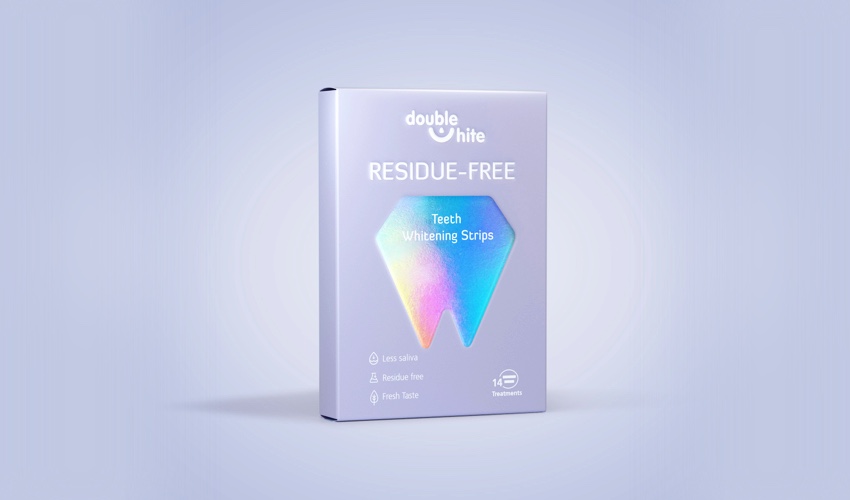
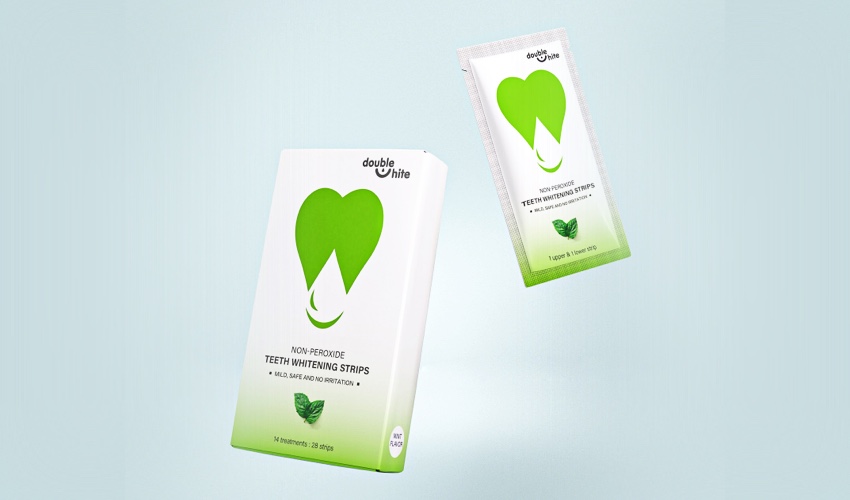
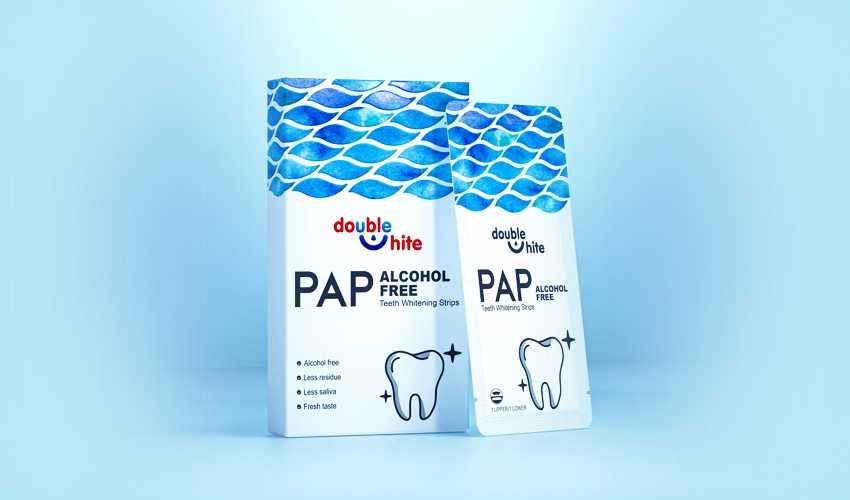
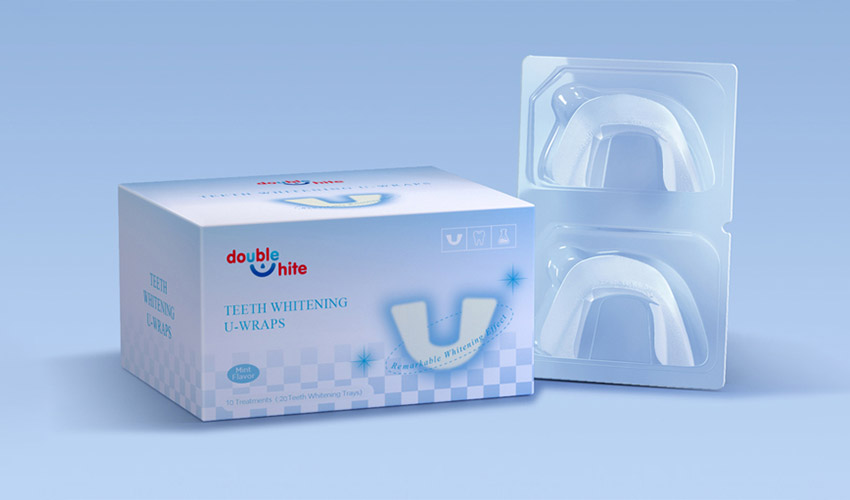
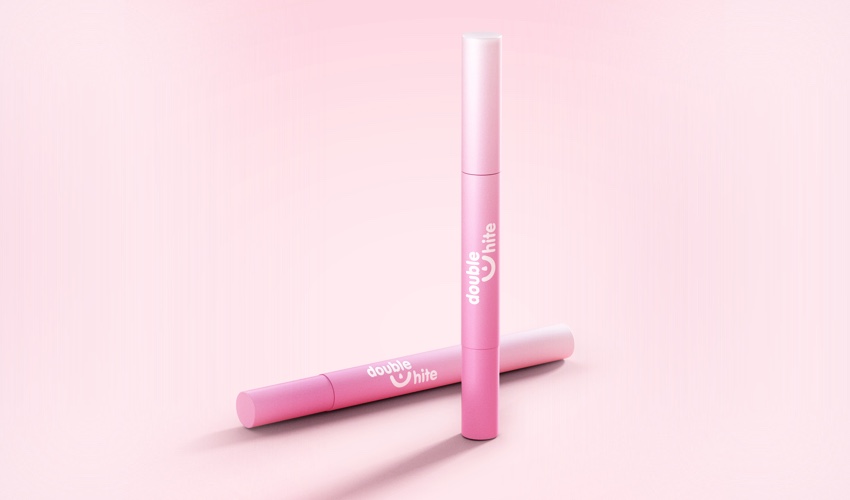
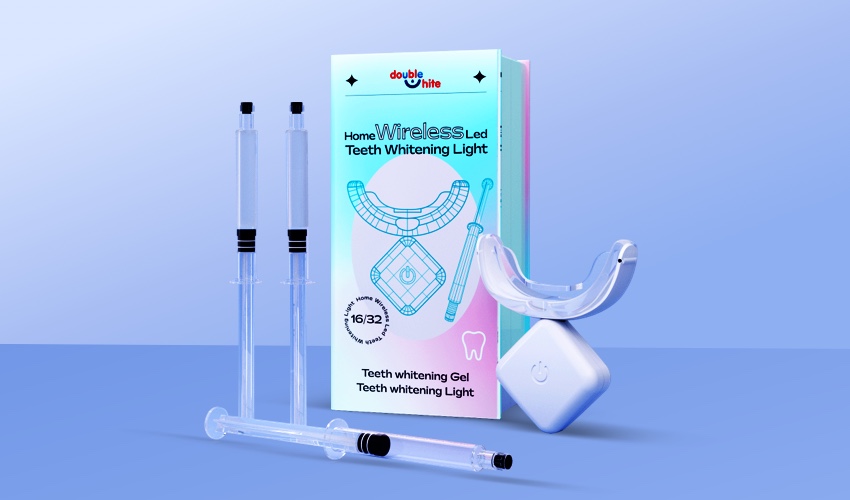
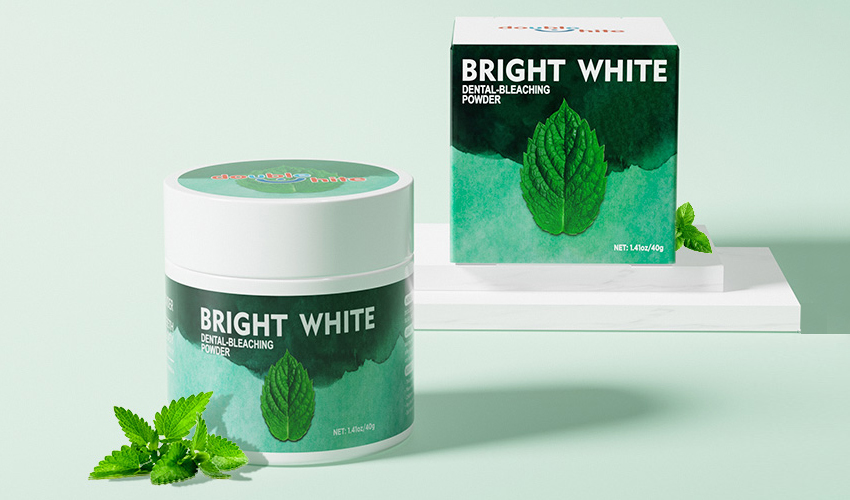






Whatsapp: +8615920313473
cndoublewhite
Doublewhite
doublewhitecn
cndoublewhite
cndoublewhite